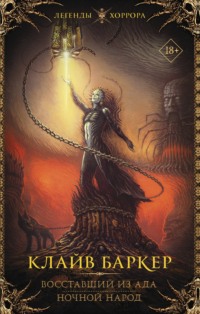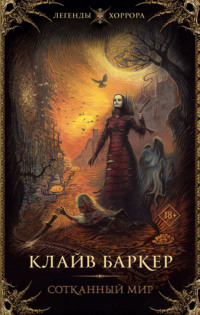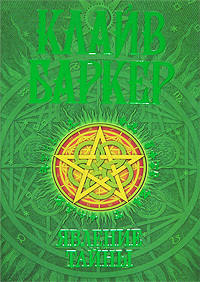
Полная версия
The Great and Secret Show
For the first time in his life his self-elected role as voyeur weighed heavily upon him. He swore to himself he’d never spy on anyone again. It was an oath he kept for a day before breaking.
As to this event, he’d had enough of it. All he could see of the girls now were the outlines of their hips and buttocks as they lay in the grass. All he could hear, with the vomiting over, was weeping.
As quietly as he could, he slipped away.
Joyce heard him go. She sat up in the grass.
‘Somebody’s watching us,’ she said.
She studied the patch of sunlit foliage, and again it moved. Just the wind, catching the leaves.
Arleen had finally found her way into her blouse. She sat with her arms wrapped around her. ‘I want to die,’ she said.
‘No you don’t,’ Trudi told her. ‘We just escaped that.’
Joyce put her hands back to her face. The tears she thought she’d bettered came again, in a wave.
‘What in Christ’s name happened?’ she said. ‘I thought it was just … flood water.’
It was Carolyn who supplied the answer, her voice without inflexion, but shaking.
‘There are caves under the whole town,’ she said. ‘They must have filled with water during the storm. We swam out over the mouth of one of them.’
‘It was so dark,’ Trudi said. ‘Did you look down?’
‘There was something else,’ Arleen said. ‘Besides the darkness. Something in the water.’
Joyce’s sobs intensified in response to this.
‘I didn’t see anything,’ Carolyn said. ‘But I felt it.’ She looked at Trudi. ‘We all felt the same, didn’t we?’
‘No,’ Trudi replied, shaking her head. ‘It was currents out of the caves.’
‘It tried to drown me,’ Arleen said.
‘Just currents,’ Trudi reiterated. ‘It’s happened to me before, at the beach. Undertow. Pulled the legs from under me.’
‘You don’t believe that,’ Arleen said flatly. ‘Why bother to lie? We all know what we felt.’
Trudi stared hard at her.
‘And what was that?’ she said. ‘Exactly.’
Arleen shook her head. With her hair plastered to her scalp and mascara smeared across her cheeks, she looked anything but the Prom Queen beauty of ten minutes before.
‘All I know is it wasn’t undertow,’ she said. ‘I saw shapes. Two shapes. Not fishes. Nothing like fishes.’ She looked away from Trudi, down between her legs. ‘I felt them touch me,’ she said, shuddering. ‘Touch me inside.’
‘Shut up!’ Joyce suddenly erupted. ‘Don’t say it.’
‘It’s true, isn’t it?’ Arleen replied. ‘Isn’t it?’ She looked up again. First at Joyce, then at Carolyn; finally at Trudi, who nodded.
‘Whatever’s out there wanted us because we’re women.’
Joyce’s sobs climbed to a fresh plateau.
‘Keep quiet,’ Trudi snapped. ‘We’ve got to think about this.’
‘What’s to think?’ Carolyn said.
‘What we’re going to say for one thing,’ Trudi replied.
‘We say we went swimming –’ Carolyn began.
‘Then what?’
‘– we went swimming and –’
‘Something attacked us? Tried to get inside us? Something not human?’
‘Yes,’ said Carolyn. ‘It’s the truth.’
‘Don’t be so stupid,’ Trudi said. ‘They’ll laugh at us.’
‘But it’s still true,’ Carolyn insisted.
‘You think that makes any difference? They’ll say we were idiots to go swimming in the first place. Then they’ll say we got the cramps or something.’
‘She’s right,’ said Arleen.
But Carolyn clung to her convictions. ‘Suppose somebody else comes here?’ she said. ‘And the same thing happens. Or they drown. Suppose they drown. Then we’d be responsible.’
‘If this is just flood water it’ll be gone in a few days,’ Arleen said. ‘If we say anything everyone in town will talk about us. We’ll never live it down. It’ll spoil the rest of our lives.’
‘Don’t be such an actress,’ Trudi said. ‘We’re none of us going to do anything we don’t all agree on. Right? Right, Joyce?’ There was a stifled sob of acknowledgement from Joyce. ‘Carolyn?’
‘I suppose so,’ came the reply.
‘We just have to agree on a story.’
‘We say nothing,’ Arleen replied.
‘Nothing?’ said Joyce. ‘Look at us.’
‘Never explain. Never apologize,’ Trudi murmured.
‘Huh?’
‘It’s what my daddy says all the time.’ The thought of this being a family philosophy seemed to brighten her. ‘Never explain …’
‘We heard,’ said Carolyn.
‘So it’s agreed,’ Arleen went on. She stood up, gathering the rest of her clothes from the ground.
‘We all keep quiet about it.’
There was no further sound of argument from any source. Taking their cue from Arleen, they all proceeded to dress then headed back towards the road, leaving the lake to its secrets and its silences.
II
i
At first, nothing happened. There were not even nightmares. Only a pleasant languor, affecting all four of them, which was perhaps the after-glow of coming so close to death and walking away from it. They concealed their bruises from view, and went about being themselves, and keeping their secret.
In a sense it kept itself. Even Arleen, who had been the first to voice her horror at the intimate assault they’d all suffered, rapidly came to take a strange pleasure in the memory, which she didn’t dare confess, even to the other three. In fact they spoke to each other scarcely at all. They didn’t need to. The same strange conviction moved in all of them: that they were, in some extraordinary fashion, the chosen. Only Trudi, who’d always had a love of the Messianic, would have put such a word to what she felt. For Arleen, the feeling was simply a reinforcing of what she’d always known about herself: that she was a uniquely glamorous creature, for whom the rules by which the rest of the world was run did not apply. For Carolyn, it meant a new confidence in herself which was a dim echo of that revelation she’d had when death had seemed imminent: that every hour without appetites fulfilled was wasted. For Joyce, the feeling was simpler still. She had been saved from death for Randy Krentzman.
She wasted no time in making her passion known. The very day after the events at the lake she went directly to the Krentzman house in Stillbrook and told him in the plainest possible terms that she loved him and intended to sleep with him. He didn’t laugh. He simply looked at her with bewilderment, then asked her, somewhat shamefaced, whether they knew each other. On previous occasions his forgetting her had practically broken her heart. But something had changed in her. She was no longer so fragile. Yes, she told him, you do know me. We’ve met several times before. But I don’t care if you remember me or not. I love you and I want you to make love to me. He went on staring at her through this speech, then said: this is some joke, right? To which she replied that it absolutely was not a joke, that she meant every word she said, and given that the day was warm and the house empty but for the two of them was there any time better than the present?
Bewilderment had not undone the Krentzman libido. Though he didn’t understand why this girl was offering herself gratis, an opportunity like this came along too infrequently to be despised. Thus, attempting the tone of one to whom such proposals come daily, he accepted. They spent the afternoon together, performing the act not once but three times. She left the house around six-fifteen and wended her way home through the Grove with a sense of some imperative satisfied. It was not love. He was dim, self-centred, and a sloppy lover. But he had perhaps put life into her that afternoon, or at least offered his teaspoonful of stuff to the alchemy, and that was all she’d really wanted from him. This change of priorities went unquestioned. Her mind was crystal clear on the need for fecundity. On the rest of life, past, future and present, it was a blur.
Early the next morning, having slept more deeply than she had for years, she called him up, and suggested a second liaison, that very afternoon. Was I that good? he enquired. She told him he was better than good; he was a bull; his dick the world’s eighth wonder. He readily agreed, both to the flattery and the liaison.
Of the quartet she turned out to be perhaps the luckiest in her choice of mates. Vain and empty-headed though Krentzman was, he was also harmless, and in his inept way, tender. The urge that took Joyce to his bed, working with equal vigour upon Arleen, Trudi and Carolyn, drove the others into less conventional embraces.
Carolyn made overtures to one Edgar Lott, a man in his mid-fifties who had moved down the street from her parents’ house the year before. None of the neighbours had become friendly with him. He was a loner; his only company two dachshunds. These, the absence of female visitors, and most particularly his penchant for colour co-ordination in his dress (handkerchief, neck-tie and socks always in matching pastel) led all to assume he was homosexual. But naive as Carolyn was in the particularities of intercourse she knew Lott better than her elders. She’d caught his eye several times, and hindsight told her his looks had meant more than hello. Intercepting him as he took the dachshunds for their morning constitutional she got to talking with him, then asked – when the dogs had marked their territory for the day – if maybe she could come home with him. Later, he would tell her that his intentions had been perfectly honourable, and if she hadn’t thrown herself upon him, demanding his devotion on the kitchen table, he would not have laid a finger on her. But with the offer there, how could he refuse?
Mismatched in years and anatomy they nevertheless coupled with a rare fury, the dachshunds sent into a frenzy of jealousy as they did so, yapping and chasing their tails ’til they exhausted themselves. After the first bout he told her he hadn’t touched a woman in the six years since his wife’s death, which had driven him to alcohol. She too, he said, had been a substantial creature. Talk of her girth made him hard again. They set to. This time the dogs just slept.
At first, the match worked well. Neither was the least judgemental when it came to the removal of clothes; neither wasted time with declarations on the other’s beauty, which would have sounded ridiculous; neither pretended this was forever. They were together to do what nature had designed their bodies to do, careless of the frills. Not for them the candlelit romance. Day in, day out she went visiting Mr Lott, as she referred to him in her parents’ company, only to have his face between her breasts seconds after the door was closed.
Edgar could hardly believe his luck. That she’d seduced him was extraordinary enough (even in his youth no woman had ever paid him that compliment); that she came back, and back again, unable to keep her hands off him until the act was thoroughly performed, verged on the miraculous. He was not surprised therefore when, after two weeks and four days, she stopped visiting. A little saddened, but not surprised. After a week of her absence he saw her on the street and he asked her politely if – quote, unquote – we could resume our hanky-panky? She looked at him strangely, then told him no. He hadn’t sought an explanation, but she offered one anyway. I don’t need you any more, she told him lightly, and tapped her stomach. Only later, sitting in his stale house with his third bourbon in his hand, did he realize what the words and the gesture meant. It drove him to a fourth and a fifth. A return to his old ways all too rapidly followed. Though he had tried very hard to keep sentiment out of the exchange, now – with the fat girl gone – he realized she had broken his heart.
Arleen had no such problems. The path she chose, pressed by the same unspoken dictate as the rest, took her into the kind of company which wore their hearts not on their sleeves, but on their forearms, in Prussian blue ink. It had begun for her, as it had for Joyce, the day after their near-drowning. She’d dressed up in her finest clothes, got in her mother’s car, and taken herself off down to Eclipse Point, a small stretch of beach north of Zuma, notorious for its bars and its bikers. The occupants of the area were not all that surprised to see a rich girl in their midst. Such types regularly drove down from their fancy houses to taste the low-life, or have the low-life taste them. A couple of hours was usually enough, before they beat a retreat, back to where the closest they got to rough trade was the chauffeur.
In its time the Point had seen some famous faces come, incognito, looking to suck on its underbelly a while. Jimmy Dean had been a regular in his wildest times, seeking a smoker who wanted a human ash-tray. One of the bars had a pool table sacred to the memory of Jayne Mansfield, who had reputedly performed on it an act even now spoken of only in reverential whispers. Another had carved in the boards of its floor the outline of a woman who had claimed to be Veronica Lake, and had passed out dead drunk on that spot. Arleen, therefore, followed a well-trodden path from luxury’s lap to the squalor of a bar she chose for no better reason than its name: The Slick. Unlike many who had preceded her, however, she didn’t need a drink to give her an excuse for licentiousness. She simply offered herself. There were any number of takers, amongst whom she made no distinction whatsoever. Nobody who came seeking failed to find.
The next night she came back for more, and for more the night after, her eyes fixing on her paramours as though she were addicted to them. Not all took advantage. Some, after that first night, viewed her warily, suspecting that such largesse was only offered by the mad or the diseased. Others found a streak of gallantry in them they’d not suspected, and tried to coax her up off the floor before the line had reached the runts of the pack. But she protested loudly and ripely at any such intervention; told them to leave her be. They withdrew. Some even joined the line again.
While Carolyn and Joyce were able to keep their affairs to themselves, Arleen’s behaviour could not go unnoticed indefinitely. After a week of her disappearing from the house in the middle of the evening and returning as dawn came up – a week in which her only reply to questions about where she was going was a quizzical look, almost as though she herself wasn’t sure – her father, Lawrence Farrell, decided to follow her. He considered himself a liberal parent, but if his princess was falling in with a bad crowd – footballers, maybe, or hippies – then he might be obliged to give her some advice. Once out of the Grove she drove like one demented, and he had to put his foot down just to keep a discreet distance. A mile or two shy of the beach he lost her. It took him an hour of scouring the parking lots before he found the car, parked outside The Slick. The bar’s reputation had reached even his liberally plugged ears. He entered, fearing for his jacket and his wallet. There was great commotion inside; a howling ring of men, beer-gutted animals with hair to the middle of their backs, gathered around some floor-show at the far end of the bar. There was no sign of Arleen. Satisfied that he’d made a mistake (she was probably simply walking the beach, watching the surf) he was about to leave when somebody began chanting his princess’s name.
‘Arleen! Arleen!’
He turned back. Was she watching the floor-show too? He dug through the crowd of on-lookers. There, at the centre, he found his beautiful child. Somebody was pouring beer into her mouth, while another performed with her that deed he, like all fathers, hated to think of his daughter performing, except – in dreams – with him. She looked like her mother, lying beneath this man; or rather, as her mother had looked that long ago when she’d still been capable of arousal. Thrashing and grinning, mad for the man on top of her. Lawrence yelled Arleen’s name, and stepped forward to pull the brute from his labour. Somebody told him to wait his turn. He hit the man on the jaw, a blow which sent the slob staggering back into the crowd, many of whom were already unzipped and primed. The fellow spat out a wad of blood, and launched himself at Lawrence, who complained as he was beaten to his knees that this was his daughter, his daughter … my God, his daughter. He didn’t give up his protests ’til his mouth was no longer capable of making the words. Even then he tried to crawl to where Arleen was lying, and slap her into recognition of what she was doing. But her admirers simply dragged him out and dumped him on the edge of the highway. There he lay for a while, until he could muster the energy to get to his feet. He staggered back to the car, and waited several hours, crying sometimes, until Arleen emerged.
She seemed quite unmoved by his bruises and his bloody shirt. When he told her he’d seen what she’d done she cocked her head slightly, as though she wasn’t entirely certain what he was talking about. He ordered her into his car. She went without protest. They drove home in silence.
Nothing was said that day. She stayed in her room, and played the radio, while Lawrence spoke to his lawyer about closing down The Slick, to the cops about bringing his assailants to justice, and his analyst about where he’d failed. That night she left again, in the early evening, or at least tried to. He intercepted her in the driveway however, and the round of recriminations postponed from the previous night erupted. All the time, she just stared at him, glassy-eyed. Her indifference inflamed him. She wouldn’t come inside when he asked her, nor would she tell why she was doing what she was doing. His concern became fury, his voice rising in decibels and his vocabulary in venom until he was calling her a whore at the top of his voice, and there were drapes being twitched aside all around the Crescent. Eventually, blinded by tears of sheer incomprehension, he struck her, and might have done further damage had Kate not intervened. Arleen didn’t wait. With her raging father in her mother’s custody she ran off, and found herself a ride down to the beach.
The Slick was raided that night. There were twenty-one arrests, mostly for minor drug offences, and the bar was closed down. When the officers arrived Lawrence Farrell’s princess was performing the same bump and grind number she’d been performing nightly for over a week. It was a story not even Lawrence’s crude attempts at bribery could keep out of the newspapers. It became prime reading material up and down the coast. Arleen was put into hospital for a full medical check-up. She was found to have two sexually transmitted diseases, plus an infestation of crabs, and was suffering the kind of wear and tear her exploits had been bound to induce. But at least she wasn’t pregnant. Lawrence and Kathleen Farrell thanked the Lord for that small mercy.
The revelations about Arleen’s forays to The Slick brought a severe tightening of parental controls around the town. Even in the East Grove there were noticeably fewer kids wandering the streets after dark. Illicit romance became tough to come by. Even Trudi, the last of the four, would soon be obliged to give up her partner, though she’d found a near-perfect cover for her activities: religion. She’d had the wit to seduce one Ralph Contreras, a man of mixed blood who worked as a gardener for the Prince of Peace Lutheran Church in Laureltree, and had a stammer of such proportions it to all intents and purposes left him speechless. She liked him that way. He provided the service she required, and kept his mouth shut about it. All in all, the perfect lover. Not that she cared much about his technique, as he valiantly played the male for her. He was simply a functionary. When he had completed his duties – and her body would tell her when that moment came – she would not think of him again. At least, so she told herself.
As it was, the affairs they were all having (Trudi’s included) were – because of Arleen’s indiscretions – quickly to become public knowledge. Though she might have found it easy to forget her trysts with Ralph the Silent, Palomo Grove would not.
ii
The newspaper reports about the scandalous secret life of small-town beauty Arleen Farrell were as explicit as the legal departments of those journals would permit, but the details had to be left for rumour to supply. A small black market in what were claimed to be photographs of the orgy proved lucrative, though the pictures were so dingy it was difficult to be sure they were of the real thing. The family itself – Lawrence, Kate, sister Jocelyn and brother Craig – had a brighter light thrown upon them. Folks living on the other side of the Grove rerouted their shopping trips so as to come along the Crescent past the house of infamy. Craig had to be taken out of school because his peers bullied him unmercifully for the dirt on his big sister; Kate upped her tranquillizer intake until she was slurring any word of more than two syllables. But there was worse to come. Three days after Arleen had been snatched back from the bikers’ den an interview purporting to be with one of Arleen’s nurses appeared in the Chronicle. It said that the Farrell girl spent most of her time in a sexual frenzy, her talk one obscenity after another, interrupted only by tears of frustration. This in itself was newsworthy enough. But, the report went on, the patient’s sickness went beyond that of an overheated libido. Arleen Farrell believed herself possessed.
The tale she told was elaborate, and bizarre. She, plus three of her friends, had gone swimming in a lake close to Palomo Grove, and been attacked by something that had entered them all. What this occupying entity had demanded of Arleen, and – presumably – of her fellow bathers, was that she get herself with child by whomever was available to provide the service. Hence her adventures at The Slick. The Devil in her womb had simply been looking for a surrogate father amid that rank company.
The article was presented with no trace of irony; the text of Arleen’s so-called confession was quite absurd enough without requiring editorial gilding. Only those in the Grove blind or illiterate failed to read the revelations brought on by drugs and beauty. No one considered there to be an iota of truth in her claims, of course, except the families of the friends Arleen had been out with on Saturday, July 28th. Though she didn’t name Joyce, Carolyn or Trudi the quartet were known to be fast friends. There could be no doubt in the minds of any who had a passing acquaintance with Arleen whom she’d written into her Satanic fantasies.
It rapidly became apparent that the girls would have to be shielded from the fall-out following Arleen’s preposterous claims. In the McGuire, Katz and Hotchkiss households the same exchange, give or take an endearment, took place.
The parent asked: ‘Do you want to leave the Grove for a while, until the worst of this blows over?’ To which the child replied: ‘No, I’m fine. Never better.’
‘Are you sure it’s not upsetting you, sweetheart?’
‘Do I look upset?’
‘No.’
‘Then I’m not upset.’
Such well-balanced children, the parents thought, to face the tragedy of a friend’s lunacy with this show of calm; aren’t they a credit to us?
For a few weeks they were just that: model daughters, bearing the stress of their situation with admirable aplomb. Then the perfect picture began to deteriorate, as oddities in their behaviour patterns made themselves apparent. It was a subtle process; one which might well have gone unnoticed for longer had the parents not been watching over their babies with such fastidiousness. First, the parents noticed their offspring keeping odd hours: sleeping at noon, and pacing at midnight. Food-fads appeared. Even Carolyn, who had never been known to refuse the edible, took a near pathological dislike to certain items: sea-food in particular. The girls’ air of serenity disappeared. It its place came moods that swung from the monosyllabic to the garrulous, the glacial to the crazed. It was Betty Katz who first suggested her daughter see the family doctor. Trudi didn’t object. Nor did she seem in the slightest surprised when Doctor Gottlieb pronounced her healthy in every respect; and pregnant.











